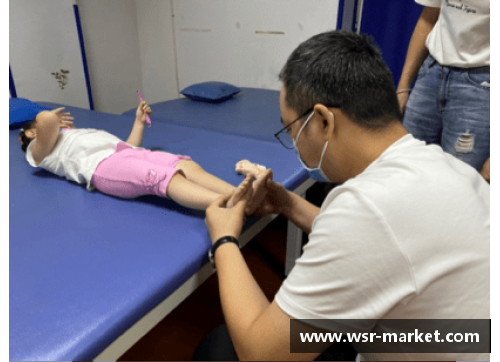九州酷游官方网站职业球员小腿骨折的治疗与康复策略
九州酷游官方网站Certainly! Here's the structured article on the treatment and rehabilitation strategies for professional athletes with tibial fractures.
九州酷游官方网站**Abstract:**
九州酷游官方网站In the world of professional sports, tibial fractures pose significant challenges to athletes, requiring meticulous treatment and rehabilitation strategies. This article explores comprehensive approaches to managing these injuries, covering initial medical interventions, surgical considerations, rehabilitation protocols, and psychological aspects crucial for optimal recovery.
---
1、Initial Medical Interventions
Treating a tibial fracture in a professional athlete begins with prompt and accurate diagnosis. Imaging techniques such as X-rays and CT scans are utilized to assess the severity and exact location of the fracture.
Once diagnosed, initial treatment focuses on immobilization through splinting or casting to prevent further damage and alleviate pain. Pain management is crucial and often involves non-steroidal anti-inflammatory drugs (NSAIDs) or stronger analgesics under careful monitoring.
In cases of open fractures where the bone penetrates the skin, immediate surgical debridement to cleanse the wound and reduce infection risk is essential before definitive treatment.
2、Surgical Considerations
Surgical intervention may be necessary depending on the fracture type and athlete’s recovery goals. Internal fixation using plates, screws, or rods provides stability, allowing early mobilization and faster recovery.
Advanced techniques such as minimally invasive surgery (MIS) minimize tissue trauma and promote quicker healing. Surgeons assess fracture alignment and stability intraoperatively to ensure optimal outcomes.
Post-surgical care involves monitoring for complications like infection or hardware failure, and adjusting rehabilitation plans accordingly to facilitate bone healing and restore function.
九州酷游3、Rehabilitation Protocols
Rehabilitation begins early to prevent muscle atrophy and joint stiffness. Initially, range-of-motion exercises and gentle strengthening activities are introduced under the guidance of physiotherapists.

Progressive weight-bearing and functional training are phased in as bone healing progresses. Modalities such as ultrasound and electrical stimulation may aid in accelerating healing and reducing pain.
Athletes undergo sport-specific training to regain strength, agility, and endurance, ensuring a safe return to competitive play. Psychological support is integral, addressing fears of reinjury and promoting confidence in performance.
4、Psychological Aspects
The psychological impact of tibial fractures on athletes cannot be overlooked. Fear of reinjury, anxiety about performance setbacks, and frustration during rehabilitation are common.
Sports psychologists work closely with athletes to develop coping strategies, enhance motivation, and foster a positive mindset. Setting realistic goals and celebrating milestones in recovery helps maintain morale.
Peer support and mentorship from fellow athletes who have recovered from similar injuries can provide invaluable encouragement and perspective.
总结:
Effective management of tibial fractures in professional athletes requires a multidisciplinary approach encompassing prompt medical intervention, tailored surgical strategies, meticulous rehabilitation protocols, and comprehensive psychological support. By addressing each aspect with precision and care, athletes can achieve optimal recovery and return to their sport with confidence.
Ultimately, successful rehabilitation hinges on collaborative efforts among medical professionals, coaches, and athletes themselves, emphasizing patience, perseverance, and a holistic approach to healing.

九州酷游官方网站皇家马德里,这支历史悠久且辉煌的足球俱乐部,近年来在欧冠赛场上频频遇挫。令人惊讶的是,自从2017年以来,皇马已经连续7年未能闯入欧冠四强。这一情况不仅让球迷们失望,也让球队管理层和教练组感到压力巨大。为了重新夺回昔日的荣光,主教练决心通过一系列的中场调整计划来重振旗鼓。 九州酷游官...